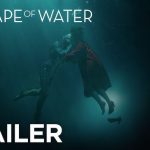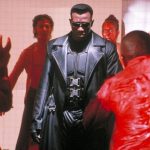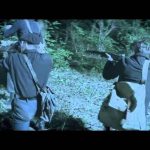Eye in the Sky (2015)
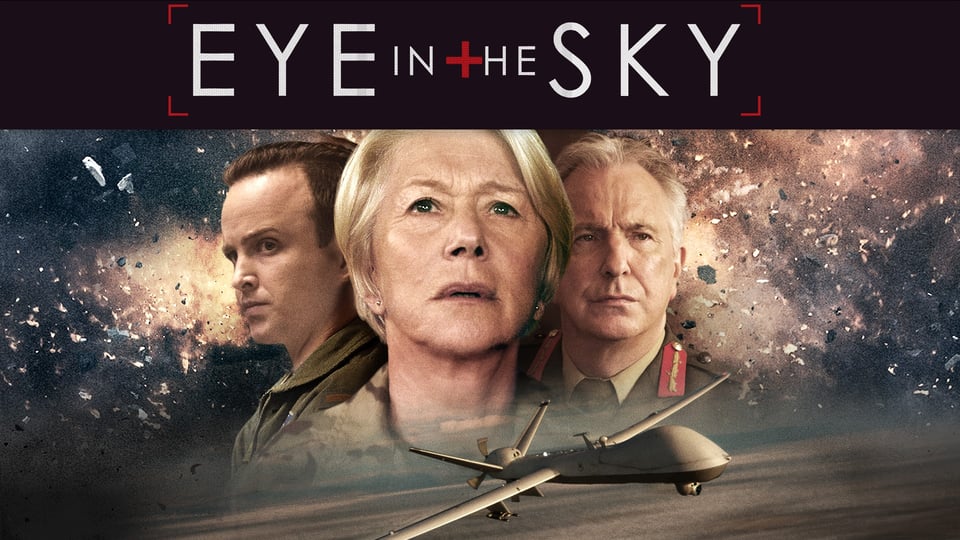
Suggested videos for you:
Suggested videos for you:
Eye in the Sky is a tense and thought-provoking thriller that explores the ethical dilemmas of modern warfare, particularly in the age of drone technology. Directed by Gavin Hood, the film centers around a British-led operation to capture high-level terrorists in Kenya, which quickly escalates into a life-or-death situation when the mission’s focus shifts from capturing to killing the suspects. What sets this movie apart is its nuanced examination of the moral consequences behind the decisions made in war zones, all unfolding in real time.
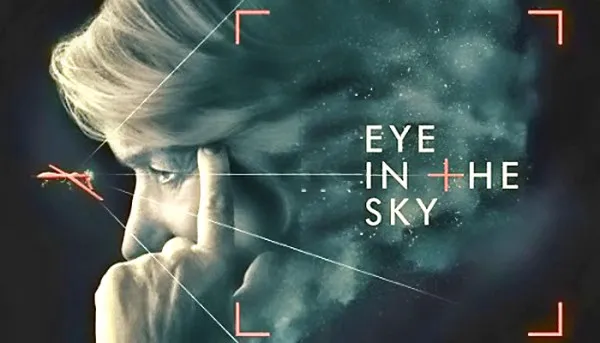
Plot and Storytelling
The plot revolves around Colonel Katherine Powell (Helen Mirren), a military officer who commands a drone operation from London. When surveillance footage shows that terrorists are about to carry out a suicide bombing, the mission shifts to a kill order. But things become complicated when a young girl enters the kill zone, forcing Powell and a team of politicians, military personnel, and drone pilots to wrestle with the ethical implications of collateral damage.
The film’s pacing is taut, with each scene building tension as the decision to strike or hold off becomes increasingly fraught. It captures the frustrations and uncertainties of warfare where human lives are weighed against strategic goals. Hood masterfully conveys the sense of real-time pressure, leaving the audience on edge throughout.
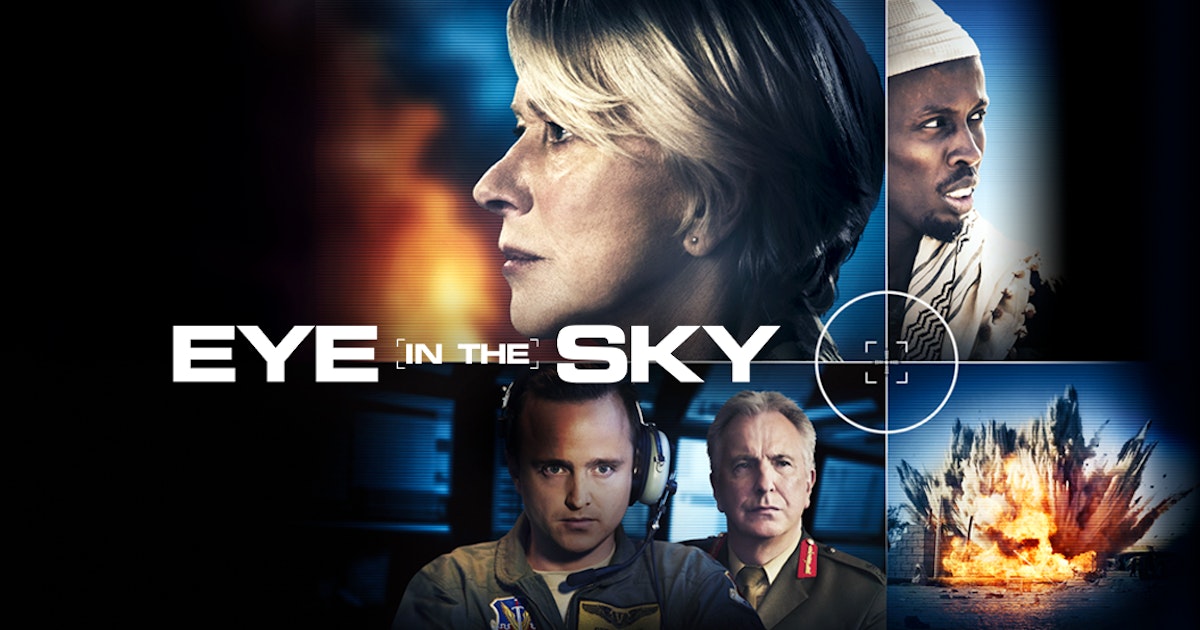
Performances
Helen Mirren delivers a commanding performance as Colonel Powell, perfectly embodying the mix of professionalism and emotional turmoil that comes with making life-and-death decisions. Aaron Paul, playing the drone pilot who must ultimately pull the trigger, portrays the moral agony of his character with depth and subtlety. The late Alan Rickman, in one of his final roles, shines as Lieutenant General Frank Benson, offering moments of dry wit amidst the moral chaos.
Themes and Ethical Questions
The film doesn’t shy away from the tough questions. It delves into the nature of modern warfare, where the battlefield is often thousands of miles away, and the line between combatants and civilians is increasingly blurred. Eye in the Sky asks its audience to consider the ethics of drone warfare, weighing the value of one innocent life against the potential for mass casualties.
The discussions between the military officials and politicians add a layer of bureaucratic complexity, as each decision-maker passes responsibility to the next, reflecting the often convoluted nature of wartime decision-making. This exploration of chain-of-command dynamics is both fascinating and frustrating, showing how the immediacy of war can be stifled by political and legal considerations.

Direction and Cinematography
Gavin Hood’s direction keeps the film visually engaging despite much of the action taking place in war rooms or through drone feeds. The use of real-time surveillance footage juxtaposed with the human faces making critical decisions adds to the movie’s authenticity and emotional impact. Cinematographer Haris Zambarloukos captures the claustrophobia of these enclosed spaces while effectively transitioning to the stark, remote landscapes of Nairobi where the ground action unfolds.

Conclusion
Eye in the Sky is a tense and intelligent war drama that tackles contemporary issues with sensitivity and urgency. It’s not an action-packed film in the traditional sense, but the stakes feel just as high as any battlefield scene. With its gripping performances and moral complexity, this movie doesn’t offer easy answers but instead invites viewers to confront the uncomfortable realities of modern warfare. Highly recommended for those interested in films that challenge their ethical perspectives and provide a window into the human cost of technological warfare.




